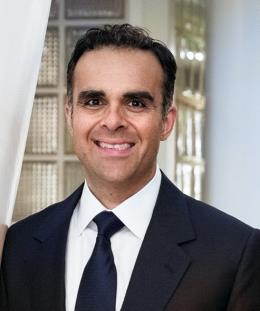The ATO has released its finalised legal professional privilege protocol titled "Compliance with formal notices – claiming legal professional privilege in response to formal notices".
What you need to know
- The ATO's recommended approach is voluntary and it is open to taxpayers to adopt none, some or all of the LPP Protocol.
- The ATO's LPP Protocol does not (and cannot) abrogate a taxpayer's fundamental right to LPP as it is a common law immunity from the exercise of statutory powers to compel the disclosure of communications.
- Taxpayers need to know clearly what their LPP rights are. Where information requests are made, taxpayers should carefully consider, with appropriate advice, what LPP claims are available to them and on whether to apply all, some or none of the LPP Protocol.
- Taxpayers need to consider embedding LPP as a key risk factor from 'Day 1' into their tax risk management and governance framework. One option is to put in place an internal communications-and-privilege protocol to manage LPP risk.
Background
Legal professional privilege (LPP) has been described as a fundamental right under our legal system and "a practical guarantee of fundamental, constitutional or human rights" (Glencore International AG v Commissioner of Taxation [2019] HCA 26).
The ATO recognises that "LPP is a fundamental common law right" and "support[s] taxpayers making LPP claims where the communications are privileged". However, the ATO has expressed a number of concerns about the conduct of some taxpayers, including:
- "making blanket claims across bundles of unreviewed documents or all documents on a computer or storage device";"using assumptions or pre-determined judgements to assess if LPP applies without regard to the merits of each communication";
- "using assumptions or pre-determined judgements to assess if LPP applies without regard to the merits of each communication";
- making claims when there is doubt as to whether the relevant "overarching service, engagement or relationship" is "capable of establishing the requisite lawyer-client relationship";
- "communications exclusively between non-legal persons in circumstances where the non-legal persons do not perform functions in furtherance of a solicitor-client relationship";
- "contrived arrangements or relationships which purport to attract LPP where there is a purpose of concealing communications from us” including "where LPP is actively promoted as a feature of tax advice";
- "routing advice through a lawyer merely for the purpose of obtaining privilege”; and
- "legal engagements entered into after the substance of advice was provided by non-legal persons".
The ATO has said that "[w]here a claim of LPP is made, it is part of our role as a regulator to decide whether to accept, review or challenge that claim" and it needs "information about the communication and the basis on which LPP is claimed" to make that decision.
The Commissioner of Taxation has more recently been testing claims for LPP through the Courts, including as to the extent to which he can request particulars of privilege claims to test their veracity (CUB Australia Holding Pty Ltd v FCT [2021] FCAFC 171) and the application of LPP principles where multidisciplinary practices (ie, involving legal and non-legal professionals) are engaged to provide advice (Commissioner of Taxation v PricewaterhouseCoopers [2022] FCA 278).
The stated purpose of the LPP Protocol is to guide taxpayers when making LPP claims so that the ATO can be satisfied that LPP has been appropriately claimed and to minimise the risk of LPP claims needing to be litigated through the Courts.
The ATO's recommended approach
The ATO's recommended approach is voluntary and it is open to taxpayers to adopt none, some or all of the LPP Protocol. The approach is designed to assist the ATO "in deciding whether to accept, review or challenge an LPP claim".
The ATO's LPP Protocol does not abrogate the fundamental right to claim LPP, which is a common law immunity from the exercise of statutory powers to compel the disclosure of communications.
Step 1 of the LPP Protocol is about the taxpayer reviewing its communications to assess for potential LPP claims. In addition to matters that would ordinarily be expected to be considered under the established legal test for LPP (including whether the purpose of a communication was for the dominant purpose of obtaining or giving legal advice), the Protocol focuses on identifying services or engagements involving:
- only legal practitioners acting in their capacity as legal practitioners and those acting under their supervision and directions (e.g. law graduates and paralegals);
- non-legal persons or legal practitioners not acting in their capacity as legal practitioners "irrespective of the firm or business structure within which the service or engagement is provided" (e.g. multi-disciplinary practices);
- a third party other than a legal practitioner (e.g. a subject-matter expert); or
- inhouse counsel (where they may have multiple roles and capacities, e.g. legal, risk-and-compliance and commercial).
Step 2 of the LPP Protocol deals with explaining the taxpayer's LPP claim by providing certain particulars to the ATO including (emphasis added):
- "a title or subject line of the communication, except to the extent that disclosure of the title or subject line would also disclose the content of legal advice";
- “the dominant purpose for which the communication was made (see the examples in Addendum 3 to this Protocol) but not to the extent this discloses the content of legal advice”;
- “the legal issue being advised upon or for which the advice is being sought, except to the extent that disclosure of the legal issue would also disclose the content of legal advice”;
- "the identity and role of each person between whom the document or communication is made”;
- in the case of services or engagements involving non-legal persons or legal practitioners not acting in their capacity as legal practitioners within the relevant service-provider firm or organisation (e.g. MDPs) or third party advice other than from a legal practitioner, "provide a copy of the terms of engagement (also referred to as a statement of work) that they are engaged under for the communication, but not to the extent this would disclose the content of legal advice", "the reason for their involvement in the communication", "their position, role and responsibility held in the organisation at the time of preparing the communication", "the capacity the person was acting in when preparing the communication" and an explanation of "why the legal advice from the legal practitioner(s) is the dominant purpose of the communication but not to the extent this would disclose the content of legal advice"; and
- in the case of communications by or to an inhouse advisor acting as a legal advisor, "whether the in-house legal advisor has been admitted to practice and, if so, the jurisdiction of admission", "as at the time of the communication, a description of all the functions, positions, roles and responsibilities" and "if the advisor had multiple functions, positions, roles or responsibilities, a description of the capacity in which that person was acting in making the communication".
Step 3 of the LPP Protocol seeks information about the approach taken and processes used by the taxpayer and its advisors in making LPP claims, including whether and how the LPP Protocol was used, whether any computer-assisted processes were used and whether the assessment of LPP was "based on any assumptions or pre-determined judgements around the context of the communications". This step is subject to the qualification that the ATO recognises that legal practitioners must comply with their ethical duties and professional obligations when advising and assisting clients to make LPP claims.
In choosing to follow the LPP Protocol, the taxpayer is "not expected to waive LPP". The ATO recognises that "the amount and type of information about the communication needed to decide what to do with the LPP claim can vary depending on the context" and "there is not a ‘standard’ amount of information that must be provided for this purpose". The ATO also recognises that risk of waiver of privilege will depend on the circumstances of each case and "the voluntary nature of this Protocol means that, if there are legitimate concerns that disclosure of certain particulars might result in waiver, that discrete information can be withheld".
Taxpayers should take care not to solely rely upon computer-assisted technology and processes for their LPP claims as the ATO's view is "you will still need to review your LPP claims, as computer-assisted processes alone are not a reasonable basis for determining if LPP applies".
The ATO may use its statutory powers to issue formal notices to obtain information of the type referred to in Steps 2 and 3 of the LPP Protocol, but this will depend on whether or the extent to which the taxpayer has applied the LPP Protocol and the ATO's view on the adequacy of the information provided under Steps 2 and 3 to enable it to decide whether to accept or challenge the taxpayer's LPP claims.
What you need to do
- Taxpayers need to know clearly what their LPP rights are. The ATO’s LPP Protocol does not diminish a taxpayer’s ability to make a legitimate LPP claim.
- Taxpayers are entitled to seek legal advice on what LPP claims are available to them and on whether to apply all, some or none of the LPP Protocol.
- Taxpayers need to have a clear understanding of the requirements associated with a client-lawyer relationship, what “legal advice” means, what is required to meet the “dominant purpose” test, the requirements associated with inhouse lawyers and that the taxpayer as the privilege-holder ultimately has the onus of substantiating a LPP claim.
- To ensure taxpayers are well placed and have the necessary evidentiary foundation to explain their LPP claims to the ATO in the context of the ATO's information-gathering not only in the context of formal notices issued by the ATO but also when the ATO's requests are made informally (e.g. questionnaires, CAR program or early stages of an audit), taxpayers should consider putting in place a communications-and-privilege protocol to:
- manage their LPP risk by factoring LPP into tax risk management and governance from 'Day 1' of a transaction or project;
- establish a standard operating procedure for engaging legal and non-legal advisors (including the nature and terms of the engagement);
- manage the way communications are made internally and externally , the purpose of a communication and the recipients of the communication; and
- manage the way documents and data are stored and accessed.
- Endeavour to maintain an appropriate level of dialogue and cooperation with the ATO during information-gathering (e.g. CAR, post CAR follow-up enquiry, review, audit or when responding to formal notices). If the taxpayer has any concerns about particularising their LPP claims (whether applying the LPP Protocol or not or in part), approach the ATO early to discuss – the ATO's LPP Protocol is clear on this.
Authors: Sanjay Wavde, Partner; Edmond Park, Counsel







